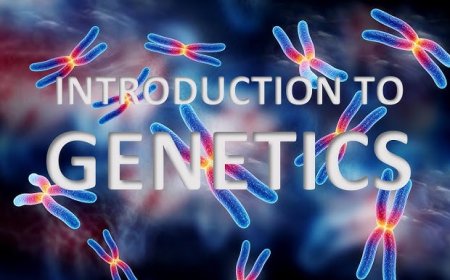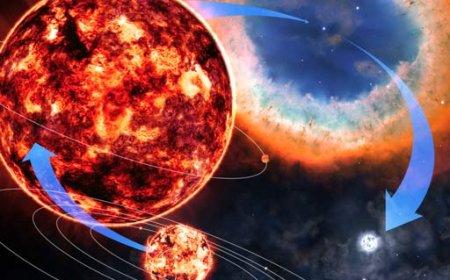Why Is Water a Universal Solvent? The Science Behind It.
Water is known as the "universal solvent" because it can dissolve more substances than any other liquid. Its polar nature enables it to interact with and break apart polar and ionic compounds, surrounding their molecules and allowing them to dissolve more easily.

Water is often referred to as the "universal solvent" because of its remarkable ability to dissolve a wide range of substances. This property of water makes it indispensable not only in daily life but also in scientific, biological, and industrial processes. But why exactly is water so effective at dissolving so many different kinds of substances? To understand this, we must dive into the unique molecular structure of water, its chemical properties, and how it interacts with various compounds. In this article, we will explore the science behind water’s role as a universal solvent and uncover why it is essential in so many different contexts.
1. Introduction
Water’s ability to dissolve so many substances is crucial in many chemical reactions and biological processes. But what exactly makes water so special? A solvent is a substance that dissolves another substance, creating a solution. Water is called a universal solvent because it can dissolve a vast range of solutes, both organic and inorganic. This includes salts, sugars, gases, and even some gases like oxygen and carbon dioxide. Let’s explore why this is the case.
Why is water called a universal solvent in science?
In science, water is called a universal solvent because it has the unique ability to dissolve many different types of molecules and ions. This is primarily due to its molecular structure and polarity. Water molecules have partial positive and negative charges, allowing them to interact with various solutes and break them down into individual components.
2. The Unique Properties of Water
Polar Nature of Water Molecules
The most critical property that makes water an effective solvent is its molecular structure. Water molecules are polar, meaning they have a positive end and a negative end. The oxygen atom holds a slight negative charge, while the hydrogen atoms carry a slight positive charge. This polarity allows water molecules to surround and interact with a wide variety of solutes.
Hydrogen Bonding
Another essential property of water is its ability to form hydrogen bonds. A hydrogen bond is a weak interaction that occurs when a hydrogen atom covalently bonded to one electronegative atom (like oxygen or nitrogen) is also attracted to another electronegative atom. In water, hydrogen bonds form between the hydrogen atom of one water molecule and the oxygen atom of another. This bonding creates a network that gives water its high cohesiveness and contributes to its solvent abilities.
High Dielectric Constant
Water also has a high dielectric constant, which allows it to reduce the electrostatic forces between charged particles, making it easier to dissolve ionic compounds like salts. This property further enhances its ability to dissolve a wide variety of substances.
3. The Science of Solvation
What is Solvation?
Solvation is the process by which solvent molecules surround and interact with solute molecules or ions, breaking them apart and dispersing them throughout the solution. In water, this process occurs when the polar water molecules surround the solute particles. This interaction helps to break the solute into smaller, solvated particles.
How Water Dissolves Substances
When an ionic compound, such as salt (NaCl), is placed in water, the positive and negative ions in the salt are attracted to the opposite charges of the water molecules. The water molecules surround the ions, pulling them apart and dispersing them throughout the solution. The result is a uniform mixture of water and dissolved ions, creating a solution.
4. Water as a Polar Molecule
Water’s polarity is crucial to its solvent properties. A water molecule consists of two hydrogen atoms bonded to one oxygen atom, forming a bent shape. The oxygen atom, being more electronegative, pulls the shared electrons toward itself, resulting in a partial negative charge on the oxygen and partial positive charges on the hydrogen atoms. This uneven distribution of charges gives water its polar character, enabling it to interact with various molecules.
Importance of Dipole Moments
The dipole moment of water—the separation of its positive and negative charges—is essential for its ability to dissolve both ionic and polar substances. The positive hydrogen ends of water molecules are attracted to negative ions, while the negative oxygen ends are attracted to positive ions, allowing water to break down and dissolve many compounds.
5. Hydrogen Bonding in Water
Hydrogen bonding is a fundamental feature of water that significantly contributes to its solvency. These bonds form between the hydrogen atom of one water molecule and the oxygen atom of another, creating a network that is highly cohesive. This network of hydrogen bonds gives water its high boiling point and surface tension, but more importantly, it enables water to dissolve a variety of solutes by interacting with their molecules.
Impact on Water’s Solvent Abilities
Hydrogen bonding allows water molecules to surround solute molecules more effectively. For example, when sugar is dissolved in water, the water molecules form hydrogen bonds with the hydroxyl (OH) groups of the sugar molecules, helping to break the sugar apart and disperse it in the solution. Similarly, in ionic compounds like salt, water molecules surround and stabilize the individual ions, preventing them from re-forming into a solid.
6. High Dielectric Constant
A substance’s dielectric constant is a measure of its ability to reduce the electrostatic forces between charged particles. Water has a high dielectric constant, meaning it can effectively weaken the attraction between positive and negative ions in ionic compounds. This allows water to dissolve ionic substances such as salts, breaking them down into individual ions that are then surrounded and stabilized by water molecules.
How It Influences Solubility
Water’s high dielectric constant makes it an excellent solvent for ionic compounds. When an ionic compound is placed in water, the charged ions experience a reduction in their electrostatic attraction, allowing them to separate and disperse in the solution. This makes water an ideal medium for dissolving salts, minerals, and other charged substances.
7. Water’s Role in Chemical Reactions
Water plays a vital role in various chemical reactions, especially in processes like hydrolysis. In hydrolysis, water molecules break chemical bonds, allowing reactions to proceed. This is important in both biological systems and industrial applications, where water often acts as a reactant in many vital processes.
Hydrolysis and Other Reactions
Water is involved in many chemical reactions where it breaks down molecules. For instance, in digestion, enzymes use water molecules to break down food molecules, allowing the body to absorb essential nutrients. Similarly, in industrial processes, water is used to break down materials and aid in the production of chemicals, pharmaceuticals, and other essential goods.
8. Examples of Water as a Solvent
Water is often used to dissolve a wide variety of substances. Some common examples include:
Salt and Ionic Compounds
When you dissolve table salt (NaCl) in water, the positive sodium ions (Na+) are attracted to the negative oxygen ends of water molecules, while the negative chloride ions (Cl-) are attracted to the positive hydrogen ends. This interaction results in the dissociation of the salt into individual ions, which are then dispersed in the solution.
Organic Molecules and Proteins
Water can also dissolve polar organic molecules such as sugars, alcohols, and proteins. The hydrogen bonds formed between water molecules and the solute molecules help to break them apart and dissolve them in water.
9. Limitations of Water as a Solvent
While water is a universal solvent, it is not effective in dissolving all substances. Water is only effective at dissolving polar and ionic compounds. Non-polar substances, such as oils and fats, do not dissolve in water because water molecules are not attracted to non-polar molecules in the same way.
Non-polar Substances
Non-polar substances do not interact with water molecules effectively. This is why oil and water do not mix. The water molecules are more attracted to each other than to the non-polar molecules of the oil, which causes them to remain separate.
Superhydrophobic Materials
Some materials, known as superhydrophobic materials, are designed to repel water. These materials are typically non-polar and do not dissolve in water. Examples include certain plastics and coatings that prevent water from adhering to their surfaces.
10. Water in Biological Systems
Water is essential for life, and its role as a solvent is fundamental to biological processes. Water facilitates the transport of nutrients and waste products, helps regulate body temperature, and is involved in countless biochemical reactions that are vital for life.
Role in Cellular Processes
Water is crucial for cellular functions, acting as a medium for the transport of ions, molecules, and proteins within cells. It also enables enzymatic reactions and plays a role in maintaining the structure of proteins and other macromolecules.
Transport of Nutrients and Waste
In multicellular organisms, water serves as a transport medium in the circulatory system, helping to deliver nutrients and remove waste products. Water's ability to dissolve gases, such as oxygen and carbon dioxide, is essential for respiration in animals and plants.
11. Water in Industrial Applications
Water’s solvent properties make it invaluable in numerous industrial applications. Water is used in cleaning processes, as a solvent in the pharmaceutical industry, and in the production of a wide range of chemicals.
Use in Cleaning and Production Processes
In industries such as manufacturing and food processing, water is used to dissolve and remove impurities. It is also used in cooling systems, where it helps to transfer heat away from machines and products.
Solvent in Pharmaceuticals
In the pharmaceutical industry, water is often used as a solvent to create medicines, ointments, and solutions. Its ability to dissolve a wide range of compounds makes it an ideal medium for creating drug formulations.
12. Water in Environmental Systems
Water is crucial for maintaining the balance of ecosystems. It helps dissolve and remove pollutants from the environment and plays a key role in the water cycle.
Dissolution of Pollutants
Water can dissolve pollutants in the air, soil, and water bodies, helping to purify the environment. For example, in the case of acid rain, water dissolves sulfur dioxide and nitrogen oxides, which then fall to the Earth, impacting ecosystems.
Impact on Aquatic Ecosystems
In aquatic environments, water’s ability to dissolve oxygen, carbon dioxide, and other gases is essential for the survival of aquatic organisms. Additionally, water helps transport nutrients and waste products in aquatic ecosystems.
13. Comparison with Other Solvents
While water is an excellent solvent, it is not the only one. Organic solvents like ethanol, acetone, and chloroform are often used when water is not effective.
Organic vs. Inorganic Solvents
Organic solvents are generally used to dissolve non-polar substances, while water is used for polar or ionic compounds. The choice of solvent depends on the solute and the nature of the interaction required.
Why Water Is Preferred
Despite the existence of other solvents, water remains the most widely used solvent due to its availability, safety, and unique properties that make it ideal for dissolving a broad range of substances.
Frequently Asked Questions (FAQs)
Why is water called the universal solvent?
Water is called a universal solvent because it can dissolve a wide variety of substances, including salts, sugars, gases, and many others. This is due to its polarity and ability to form hydrogen bonds.
Why is water a universal solvent PDF?
A PDF document would explain in greater detail how water's polarity, hydrogen bonding, and high dielectric constant contribute to its ability to dissolve various substances. It is often used to highlight the scientific explanations of solubility.
Why is water the universal solvent Wikipedia?
According to Wikipedia, water is the universal solvent because of its polar nature and ability to dissolve many different types of solutes, including both ionic and polar molecules.
Why is water often called the universal solvent because many?
Water is often called the universal solvent because it dissolves many substances, such as salts, gases, sugars, and alcohols, due to its polar structure and ability to form hydrogen bonds.
What characteristic property makes water the universal solvent?
The characteristic property that makes water a universal solvent is its polarity. The positive and negative charges on water molecules allow them to interact with and dissolve a wide variety of solutes.
What are the 7 main properties of water?
The seven main properties of water are: polarity, cohesion, adhesion, high specific heat, high heat of vaporization, universal solvent, and surface tension.
Why is water called the universal solvent Brainly?
Water is called the universal solvent because it can dissolve a vast range of substances, including salts, sugars, and gases. This property is primarily due to its molecular polarity, allowing it to interact with various solutes and break them down into their constituent particles.
Why does sugar dissolve in water?
Sugar dissolves in water because water molecules surround and interact with the sugar molecules. The hydrogen bonds in water help break the sugar's bonds, dispersing it evenly throughout the water. The polar nature of both water and sugar allows the two to mix easily.
Why is water a good solvent in A-level biology?
In A-level biology, water is a good solvent because it is essential for processes such as nutrient transport and chemical reactions in living organisms. Its polarity allows it to dissolve a wide variety of ions and molecules, which is crucial for maintaining life processes within cells and tissues.
Why is water called the universal solvent Weegy?
Water is referred to as the universal solvent on platforms like Weegy because it has the ability to dissolve many different substances, making it a versatile medium for various biological and chemical processes. Its polar nature and hydrogen bonding capabilities are key to this characteristic.
Why is water essential to all living things?
Water is essential to all living things because it supports numerous vital functions such as nutrient transport, temperature regulation, and biochemical reactions. Its solvent properties enable the movement of ions, nutrients, and waste products in organisms, making it indispensable for cellular functions and life processes.
Can we replace water in the place of universal solvent?
While no single solvent can replace water in all its functions, there are some alternative solvents for specific tasks. However, water is unique in its versatility and widespread use across biological, chemical, and industrial processes. Other solvents cannot match water's ability to dissolve such a wide range of substances.
Why doesn't oil dissolve in water?
Oil does not dissolve in water because oil molecules are non-polar, while water molecules are polar. The polar water molecules are attracted to each other more strongly than they are to the non-polar oil molecules, causing the two substances to remain separate and not form a solution.
What are the disadvantages of water as a solvent?
While water is a universal solvent, it has limitations. It is not effective at dissolving non-polar substances like oils and fats. Additionally, water can dissolve harmful substances like heavy metals or toxins, which may pose environmental or health risks. Its ability to dissolve salts and minerals may also lead to corrosion in some industrial settings.
Why does salt dissolve in water so easily?
Salt dissolves in water easily because it is an ionic compound, and water molecules are polar. The positive sodium ions (Na+) are attracted to the negative end of the water molecule, while the negative chloride ions (Cl-) are attracted to the positive end. This interaction helps break the salt apart and disperses the ions throughout the water.
What two factors affect solubility the most?
The two factors that most affect solubility are temperature and the polarity of the solute and solvent. Increasing temperature generally increases the solubility of most solutes in water. The greater the polarity of the solute and solvent, the better they interact, leading to higher solubility.
Why is water a good solvent for ionic salts?
Water is a good solvent for ionic salts because its polar nature allows it to surround and stabilize the positive and negative ions that make up the salt. The oxygen atoms of water molecules are attracted to positive ions, and the hydrogen atoms are attracted to negative ions, making it easy to break the ionic bonds and dissolve the salt.
Is water polar or nonpolar?
Water is a polar molecule. The oxygen atom is more electronegative than the hydrogen atoms, resulting in a partial negative charge on the oxygen and partial positive charges on the hydrogen atoms. This polarity allows water to interact with various solutes and dissolve them effectively.
15. Conclusion
Water’s designation as the universal solvent stems from its unique properties, including its molecular polarity, ability to form hydrogen bonds, and high dielectric constant. These characteristics allow water to dissolve a wide range of substances, including salts, sugars, and gases. Its role in biological processes, chemical reactions, and industrial applications makes it an indispensable solvent in science and daily life.
From facilitating essential life processes to playing a critical role in industrial manufacturing and cleaning, water’s solvent properties are unparalleled. Understanding the science behind why water is a universal solvent helps us appreciate its importance in both natural and artificial systems.










































